I’ve been remiss in adding my list of reviews. Looking back, it would appear that my reading theme for 2017 was learning how I actually view the world (and how deliberate practice can help shape who you are). To steal a line from Derek Sivers (sivers.org) “If [more] information was the answer, then we’d all be billionaires with perfect abs.” so you are what you practice, not what you know.
At a minimum, I thought that I should at least put together a short post outlining my three favorite / most impactful books from 2017. I failed, but a top 5 gives you more than 10 weeks to read each one!
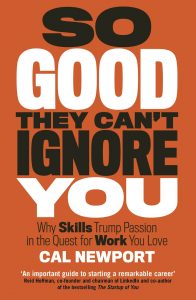 So Good they Can’t Ignore You
So Good they Can’t Ignore You
The title is stolen from a Steve Martin quote – “Become so good they can’t ignore you” and this turns the conventional wisdom (“Follow your passion”) on its head and argues instead for working hard and what you work on will become your passion. Lots of good material here, including contrasting what Steve Jobs actually did versus what he told people to do. A big chunk of these “creation myths” can probably be chalked up to cognitive bias, which was probably evident to me because I read “Thinking Fast and Slow” (My number 2 choice) less than a month before, and was still thinking about the massive amount of information presented there.
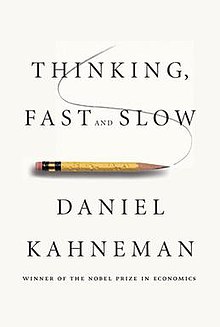 Thinking Fast and Slow
Thinking Fast and Slow
“Thinking Fast and Slow” is a foundational book (I ran into at lease a dozen references to it in other books I read last year) and gets into the wildernesses of how people make decisions as well as going into a lot more detail on the “What and Why” as “Decisive”.
“Thinking Fast and Slow” will help you understand (and recognize) System 1 (how we largely interact with the world – on autopilot) and System 2, which takes effort (and should’t be engaged unless it’s needed – by which time it’s often too late). This blends nicely into the section on “Rationality” and (indirectly) how to game the system: a lot of this is now being used to bias your marketing decisions, so it’s important to be able to understand how your biases are being manipulated.
The last section of “Thinking Fast and Slow” delves into identity – “you are what you remember”. Probably the most critical point in this section is that when we are “remembering” how good a time we had, we are really ranking it on the average experience, and the END of the experience. This (sadly) explains my performance on a job interview that I thought I had knocked out of the park, but fumbled as the interviewers realized that they were late for their next meeting.
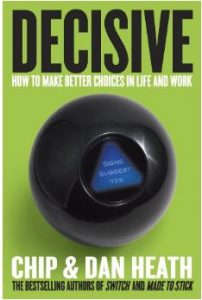 Decisive
Decisive
If you are more interested in a “recipe book” to help you and your organization make better decisions, then decisive is an excellent “How to” book. You can’t eliminate your biases (particularly perceptual biases – they are like “bugs” in the human 1.0 operating system) but you can put strategies in place to counteract them.
This book has a ton of useful tips and tricks like the “Pre-Mortum” (Pretend that you are a year in the future and your project has spectacularly failed – what went wrong?) and includes a number of other tips and tricks targeted at specific perceptual biases. There are whole sections on figuring out if you can have this AND that, as well as the biggest counters for hubris: I’m a big fan of having a formal “Red team review” process for deliberately finding problems with proposals – and then deciding if you are going to fix them, or do something else.
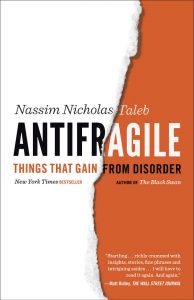 Antifragile
Antifragile
Antifragile has a lot of information (at times very dense) on risk assessment, and ties into much of the same research that “Thinking Fast and Slow” and “Decisive” are based on. It’s by the same author as “The black Swan” and explains why people are really bad at assessing low probability events (particularly those that also have large consequences) and uses much of the same background at “Thinking Fast and Slow” (above). One of the most interesting things about the book is the argument that we are missing a word: the opposite of “Fragile” isn’t “Robust” (resistant to strain) but “Antifragile” (Becomes stronger with strain), with many biological examples such as strength training: by putting your system under strain you get stronger, versus simply resisting breaking.
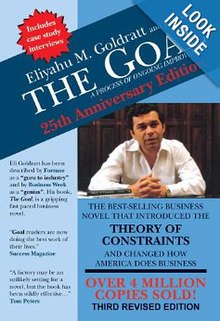 The Goal
The Goal
This book is an excellent introduction to the theory of constraints (novel when the book was written, now a core part of doctrines like lean manufacturing and six sigma process control. This is an excellent introduction to business process optimization, since it is written more like entertainment than a textbook, and succeeds (much like Aesop’s fables) by being entertaining while incidentally teaching you things.